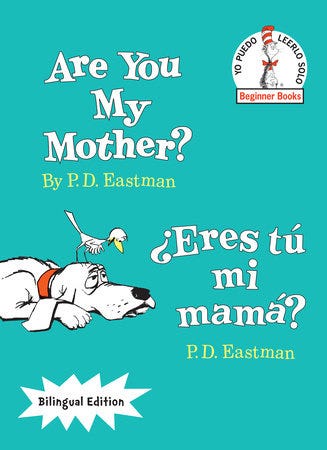
In George Eliot’s wonderful second novel, “The Mill on the Floss,” there is this sentence: “Certain seeds which are required to find a nidus for themselves under unfavorable circumstances have been supplied by nature with an apparatus of hooks, so that they will get a hold on very unreceptive surfaces.”
The book isn’t about farming; the sentence is metaphorically describing the spiritual seed that had been scattered over an obstinate, grumpy character. Within that sentence, however, is the word “nidus.” If I didn’t know Spanish as well as I know it, I wouldn’t have known what this English word was because it’s not a common word in English, but I immediately recognized it and understood it because of my own Cognate Cognizance.
nidus — in simplest terms, this is a “nest” for the eggs of insects, spiders, small animals, or it’s a breeding place or a place where something originates
nido — the Spanish word for “nest”
In English, we use the word “nest” because it comes to us from Old English whereas “nidus” and the Spanish word of “nido” come from Latin’s nidus meaning “nest.” Thus, it’s natural that we don’t use the word “nidus” very often, preferring the word “nest” instead with its roots in Old English.
When we do use “nidus,” it tends to have a more negative connotation and is used to refer to a breeding ground and originating place for bacteria. Yuck.

As I write this, I see numerous red-breasted robins hopping all over my yard in search of food and possibly looking for dry grass and twigs to begin building their own “nidi” or “niduses.” The verb that means “to build a nest” is “nidulate.” That word is “nidular” in Spanish. The noun that refers to nest building is “nidulation” which is “nidulaciόn.”
In all honesty, until reading that sentence in “The Mill and the Floss,” I had no idea the word “nidus” existed in English. If I had, I would have shared it with my students because I had a copy of “Are You My Mother?” in Spanish, and the word “nido” appears often in it, so it was a word that I taught my students to recognize and a word that I became very familiar with in Spanish.
Once again, the power of Cognate Cognizance to improve your lexicon in one language because of your knowledge of another has come through for me. I’ll share another word from this novel next week.
Until then. Because I know I have some Spanish teachers among my free subscribers as well as a couple new free subscribers, I’m sending this out to everyone this week, but please upgrade to “paid” to not miss a week and to be able to access the audio recording of each episode. Thanks.
Tammy Marshall














Share this post